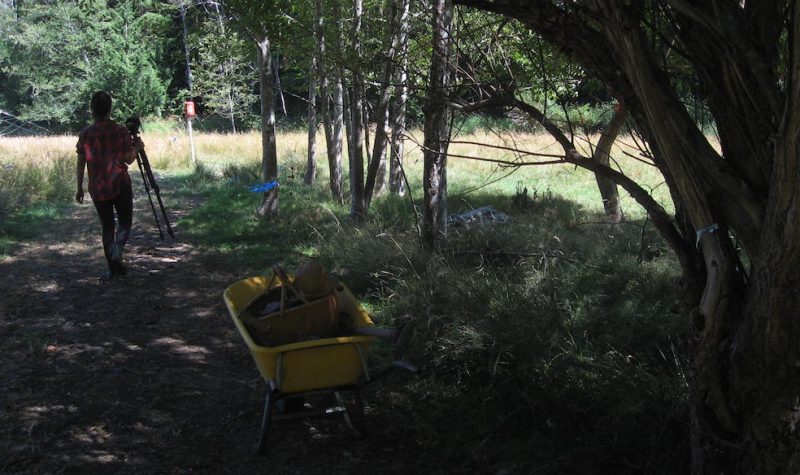The preliminary stages of Cortes Island’s first wetland restoration project are underway at Dillon Creek, on Linnaea Farm.
“Back in 2014, we had a very large algae bloom in the lake. There was a very annoying smell and taste in the water for about two weeks and then it lingered on for about another two weeks with the smell in the air,” explained lead author Rex Weyler, when the first Hague & Gunflint Lakes Monitoring Report was published in 2017.
The problem was human septic and livestock nutrients draining into the lake.
“Everyone who lives around the lake is a contributor,” said Autumn Barrett-Morgan, a Biological Monitoring Technician with the Friends of Cortes Island Society (FOCI).
However, Dillon Creek has been a vector for a significant amount of the nutrient and sediment input into Gunflint and Hague lakes. Prior to the advent of what is now Linnaea Farm, the field used to be a wetland and a series of meandering streams that would have naturally filtered out nutrients and sediment. This wetland was drained via man-made Dillon Creek, and turned into agricultural land decades ago. Draining wetlands was a common farming practice around the world, to gain access to rich soils and relatively flat land.
FOCI and Linnaea Farm have partnered to restore wetlands in a lower portion of the field, up from the mouth of Dillon Creek into Gunflint Lake.
The construction work will take place from August 15th to 17th, but in the meantime FOCI has been carrying out invasive species removal and biological monitoring.
CKTZ News interviewed Autumn Barrett-Morgan on July 29th, the day after a crew of volunteers removed Himalayan Blackberries, thistles and holly from the site.
“It went really well. We’ve had multiple invasive species removals now, and yesterday there were four of us … We started late because of the heat wave. We might do another work bee, going forward, into the evening because it is a lot cooler,” she said. “Invasive species feel much more manageable when there is a team removing them.”
Barrett-Morgan said that a very large percentage of the world’s wetlands have been drained for farming and human development.
“Wetlands are the Earth’s kidneys. So we’re removing [draining] our filtering system, our kidneys, and that has been a very large contributor to global climate disruption,” she said. “Being able to restore even a little bit of that here is [hopefully] going to be really impactful and it can also be a really cool precedent setting project on Cortes Island. Measuring and monitoring its success, will hopefully lead to restoring even larger areas of wetlands on the island and along the coast.”


